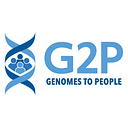Is It Too Soon to Consider Genome Sequencing for Newborns?
Parents and clinicians have their own ideas about newborn genome sequencing.
By Robert C. Green
The procedure is the same for nearly every baby born in the United States: in the first 24 hours after birth, before going home from the hospital, a nurse pricks the newborn’s heel, collecting a few drops of blood on a piece of filter paper. The tiny blood samples go to a state laboratory, which performs a series of biochemical tests and informs the child’s pediatrician of any abnormal results which can then be confirmed through additional testing. While there are many initial false positives, the vulnerable infants with these conditions are rarely missed.
Newborn screening covers more than 30 conditions, all of which have the potential to permanently damage the infant without early intervention. Newborn screening is inexpensive and informs parents only about conditions that are urgent and actionable. The risks are low and the rewards are high, so it has become a requirement in every state and every industrialized country.
With newborn screening as the model, many have asked why we are not eager to screen infants more comprehensively with genome sequencing. Instead of 30–50 rare conditions, we could screen newborns for several thousand genetic conditions. Even if symptoms of these diseases might not appear until later in childhood or even adulthood, or might never appear at all, isn’t more information a good thing?
If it were this straightforward, we would probably already see widespread genome sequencing of newborns. Although genome sequencing shows great promise, medical professionals are taking a cautious approach, discouraging genome sequencing of healthy children. Much of the caution stems from concerns about how families might respond to the results and questions about the true utility of this information at the newborn stage.
The BabySeq Project, a randomized clinical trial with more than 300 participating families (parents with newborn babies), is examining how to integrate genomics safely and effectively into pediatric medicine, beginning with newborn sequencing. Half of the participating families receive the standard newborn genetic screening along with a family history report; the other half receive those same reports plus a comprehensive genome sequencing report for the newborn.
BabySeq follows parents and clinicians through this process, and the data gathered along the way has given researchers a lot to work with. For example, one paper (published in Pediatrics, January 2019) focuses on a case in which genome sequencing uncovered an adult-onset cancer predisposition variant in a newborn, raising immediate implications for the baby’s parent who was carrying the same variant — and for whom this information may now be life-saving. (We’ll unpack this case in a future post.)
Another paper, also just published in Pediatrics, dives into surveys of the parents and clinicians involved in BabySeq to better understand their attitudes toward newborn genome sequencing. Although previous studies found that parents had a theoretical interest in obtaining genomic sequencing for their newborn, this paper breaks new ground in examining the responses of parents faced with the prospect of actually receiving that information.
Questioning these parents uncovered some interesting results. On balance, parents and clinicians were both fairly optimistic about newborn genome sequencing, but parents had a significantly sunnier view. Only 35 percent of parents saw significant risks associated with genome sequencing, compared with 70 percent of clinicians, and parents saw more potential benefits as well. There is a caveat to these results, in that we were surveying parents who had already chosen to participate in BabySeq; it stands to reason that they would have generally positive views of newborn genome sequencing. Perhaps the more compelling information is why parents and clinicians saw risks or benefits.
In the surveys’ open-ended responses about risks of genome sequencing, parents and clinicians both expressed concerns about psychological distress related to difficult or uncertain results. Clinicians were more likely to raise concerns about returning results for adult-onset conditions, unnecessary parental stress over health problems that might never actually occur, and the possibility of future discrimination against the child on the basis of their genomic information.
On the other hand, parents mentioned a broader range of benefits than clinicians. Both parents and clinicians saw potential health benefits of genome sequencing, such as the ability to search for more conditions compared to standard newborn screening and the ability to predict a child’s future disease risks. Parents went further, though, seeing benefits in family planning, preparing for the child’s future, and knowledge just for the sake of knowing. Those potential benefits fall outside of traditional definitions of clinical utility, which means they are less likely to be considered in the professional guidelines that steer adoption of practices like genome sequencing.
This brings us into a debate that may be central to the near future of genome sequencing, not only for newborns but for ostensibly healthy adults as well: how to define the utility of genomic technologies. How much weight, if any, should patients’ perceptions carry? If they think genomic information will have utility, should that count for something, even if clinicians and researchers have their doubts? Should the idea of “clinical utility” be expanded beyond information that directly affects medical care, perhaps including perceived quality of life impacts for patients?
These are the very questions that the BabySeq Project is designed to answer, and we will continue reporting on the results as they are analyzed and published.
Robert C. Green, M.D., M.P.H., is a medical geneticist and physician-scientist who directs the G2P Research Program in translational genomics and health outcomes in the Division of Genetics at Brigham and Women’s Hospital, the Broad Institute and Harvard Medical School. Follow him on Twitter at @RobertCGreen.
